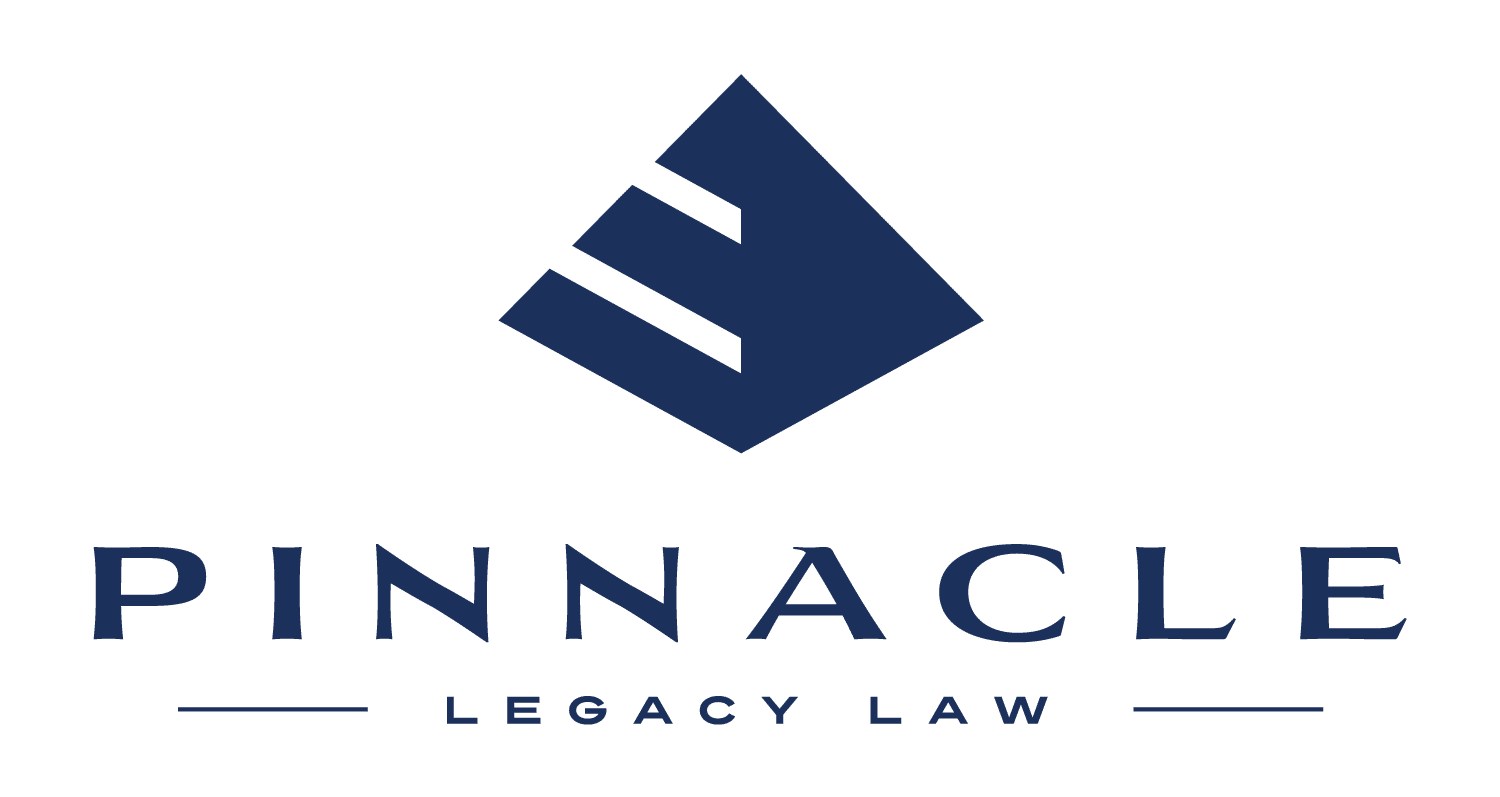Pinnacle Legacy Law
Testamentary Trusts
Powerful Protection
A testamentary trust is a trust that is created by a person’s will and goes into effect after their death. A testamentary trust can provide peace of mind by ensuring that your assets are distributed in accordance with your wishes and that your beneficiaries are protected. It can also help minimize taxes and avoid probate, making the process of settling your estate faster and less costly.
What Testamentary Trusts Do:
Allow for control of assets after death: A testamentary trust can help ensure that your assets are distributed in accordance with your wishes and that your beneficiaries are protected.
Protect assets from creditors: A properly structured testamentary trust can provide protection for your beneficiaries’ assets from creditors, lawsuits, and divorce.
Provide tax benefits: A testamentary trust can provide tax benefits, such as minimizing estate taxes, income taxes, and generation-skipping transfer taxes.
Provide for minors or incapacitated beneficiaries: A testamentary trust can provide for minor or incapacitated beneficiaries, ensuring that their assets are managed appropriately and that their needs are met.
Ensure family harmony: A testamentary trust can help ensure that your assets are distributed in a way that promotes family harmony and reduces the likelihood of disputes among beneficiaries.
What Testamentary Trusts Don’t Do:
Avoid probate: A testamentary trust does not avoid probate. The assets must go through the probate process before they can be distributed to the trust.
Provide immediate benefits: A testamentary trust does not provide any benefits during the person’s lifetime, as it only goes into effect after their death.
Provide complete asset protection: While a testamentary trust can provide some protection for your beneficiaries’ assets, it may not provide complete protection in all cases.
Guarantee tax benefits: While a testamentary trust can provide tax benefits, these benefits are not guaranteed and will depend on the specific circumstances of the trust and the beneficiaries.
Replace other estate planning documents: A testamentary trust is just one component of an estate plan and should be used in conjunction with other estate planning documents, such as a will and powers of attorney.
Here are some benefits of a testamentary trust:
Control of assets after death: A testamentary trust can give you control over how your assets are distributed after your death. This can be especially important if you have minor or incapacitated beneficiaries, or beneficiaries who are not yet mature enough to manage their own finances.
Protection of assets: A testamentary trust can provide protection for your beneficiaries’ assets from creditors, lawsuits, and divorce. This can help ensure that your beneficiaries receive the full benefit of your assets, rather than having them seized by others.
Tax benefits: A testamentary trust can provide tax benefits, such as minimizing estate taxes, income taxes, and generation-skipping transfer taxes. This can help preserve more of your assets for your beneficiaries.
Flexibility: A testamentary trust can be customized to meet your specific needs and the needs of your beneficiaries. You can specify the conditions under which your beneficiaries can receive the assets, and you can even provide for the care of pets or other special needs.
Promotes family harmony: A testamentary trust can help reduce the likelihood of disputes among beneficiaries by ensuring that your assets are distributed in a way that promotes family harmony.
Provides for the care of minors: A testamentary trust can provide for the care of minor beneficiaries by appointing a trustee to manage the assets and ensure that the child’s needs are met.
Here are some important things to know about testamentary trusts:
Testamentary trusts are created by a will: Unlike living trusts, which are created during a person’s lifetime, testamentary trusts are created by a person’s will and only go into effect after their death.
Testamentary trusts can be customized: Testamentary trusts can be customized to meet your specific needs and the needs of your beneficiaries. You can specify the conditions under which your beneficiaries can receive the assets, and you can even provide for the care of pets or other special needs.
Testamentary trusts are irrevocable: Once a testamentary trust is created, it is irrevocable, meaning that it cannot be changed or revoked. Therefore, it is important to carefully consider the terms of the trust before including it in your will.
Testamentary trusts can provide tax benefits: A properly structured testamentary trust can provide tax benefits, such as minimizing estate taxes, income taxes, and generation-skipping transfer taxes.
Testamentary trusts can provide asset protection: A properly structured testamentary trust can provide protection for your beneficiaries’ assets from creditors, lawsuits, and divorce.
Testamentary trusts require a trustee: A testamentary trust requires a trustee to manage the assets and ensure that the trust’s terms are followed. It is important to carefully consider who you appoint as trustee, as they will have significant responsibility for managing the trust.
Testamentary trusts can promote family harmony: By specifying the conditions under which your beneficiaries can receive the assets, a testamentary trust can help reduce the likelihood of disputes among beneficiaries and promote family harmony.
Testamentary trusts can provide for the care of minors: A testamentary trust can provide for the care of minor beneficiaries by appointing a trustee to manage the assets and ensure that the child’s needs are met.
Start protecting your legacy.
Click the link below and schedule a call with a member of our team. We will explain our unique process for working with farmers, ranchers and their families. The call is FREE!
